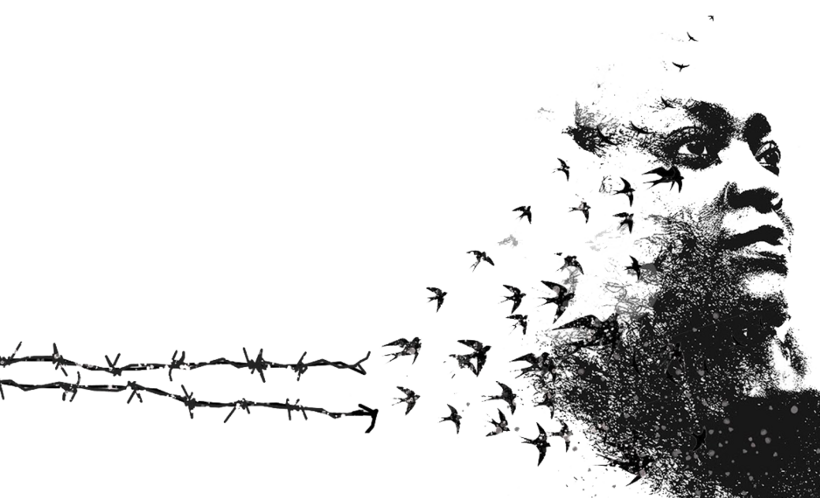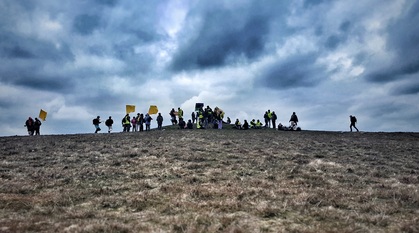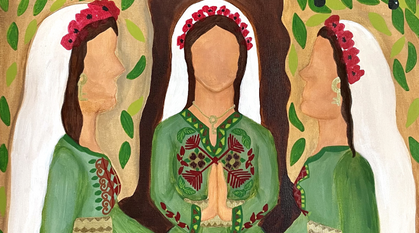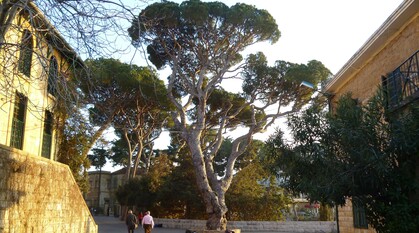At the crossroads of climate justice and migrant rights
Ginny Baumann from the Quaker Asylum and Refugee Network explores how to build better links between climate and migrant justice campaigns.

Across our Yearly Meeting, the issues of climate justice and migrant rights are live concerns. Although they are often carried forward by different groups of Friends, they are somehow held invisibly together within our Quaker meetings. But in our wider communities, efforts to tackle these two issues aren't often unified, and it means that climate campaigning can sometimes feed into unintended harm on migrant issues.
For example, as climate breakdown destroys local livelihoods and destabilises the world's governments and economies, more people are being uprooted. There's no doubt that climate experts, the UN and campaigners are telling the truth about the unprecedented scale of forced displacement. Unfortunately, this message can be heard as if most of the climate migrants are heading directly to the UK, instead of mainly shifting the shortest possible distance within their own country or those neighbouring.
Challenging hostile narratives
Headlines like "Climate change could displace 1.2 billion people by 2050" are vital, but they also open the way for the far right to stir up and misdirect people's fears, urging violent measures to repel all migrants from our borders, while multiplying spending on military responses.
Governing with a broad but thin electoral majority, it's understandable for mainstream politicians to worry about the far right. But instead of holding fast to hard evidence and mobilising resources towards constructive migration and climate solutions, they often echo the same hostile narratives. These hostile narratives then drive government policy – we've seen that this week with the government's cruel decision to block refugees who arrived irregularly from gaining British citizenship. In this context, it's vital that climate justice and migrant rights movements work together and that we urgently point towards more humane and realistic ways forward.
Working together
Seeing this need, 100 local and national initiatives from across the UK met in Sheffield at the end of January for a two day workshop entitled Building a better future, looking for ways for climate and migrant movements to develop common messaging and strategies. Quakers are part of the UK's Climate Justice Coalition which organised the workshop.
It was an impressive array of organisations: There were multiple groups led by migrants and refugees, local groups providing services to people arriving and facing destitution, groups that are pushing banks and insurance companies to pull the plug on fossil fuels, youth climate action groups and many more. There were also groups like City of Sanctuary UK and Refugee Week, doing steady, transformative work inside our schools, local government and religious institutions to stimulate understanding, welcome and unity.
What came out of the workshop? We mainly explored the causes of climate change and the drivers of migration. We analysed the shared roots of these issues in empires and their aftermath which built wealth, corporate power and overconsumption through exploitation of people and nature around the world.
Building a better future
One message was clear: as long as the inconceivable wealth of a few remains sacrosanct, as long as we do not expect companies to be accountable, and while the revolving door of political influence keeps spinning for the military and the borders industry, a liveable planet will be ruled out – and with it the right of people to stay in home countries or to move when they need to. When we question, negotiate and change these corrupting 'inevitabilities', then we can build a better future.
One way to stay in touch with initiatives that are taking up this challenge is to follow the Climate Justice Coalition via their website Climate and Migrant Justice and social media accounts (Instagram / Bluesky / Facebook). You can also subscribe to the Quakers in Britain Faith in Action newsletter.


